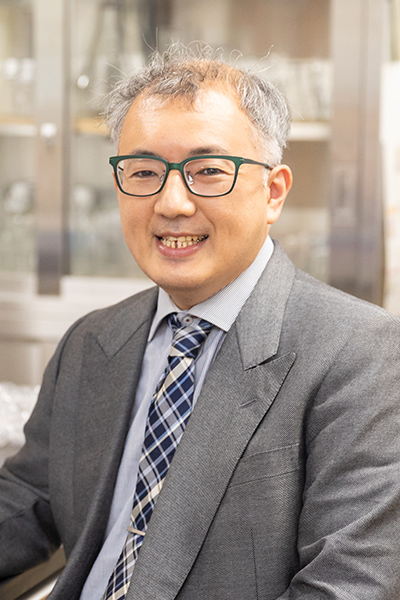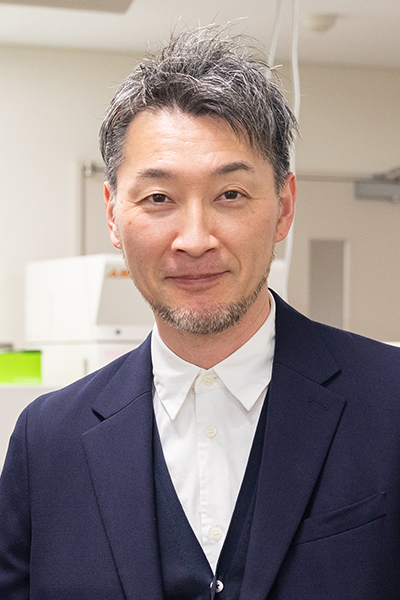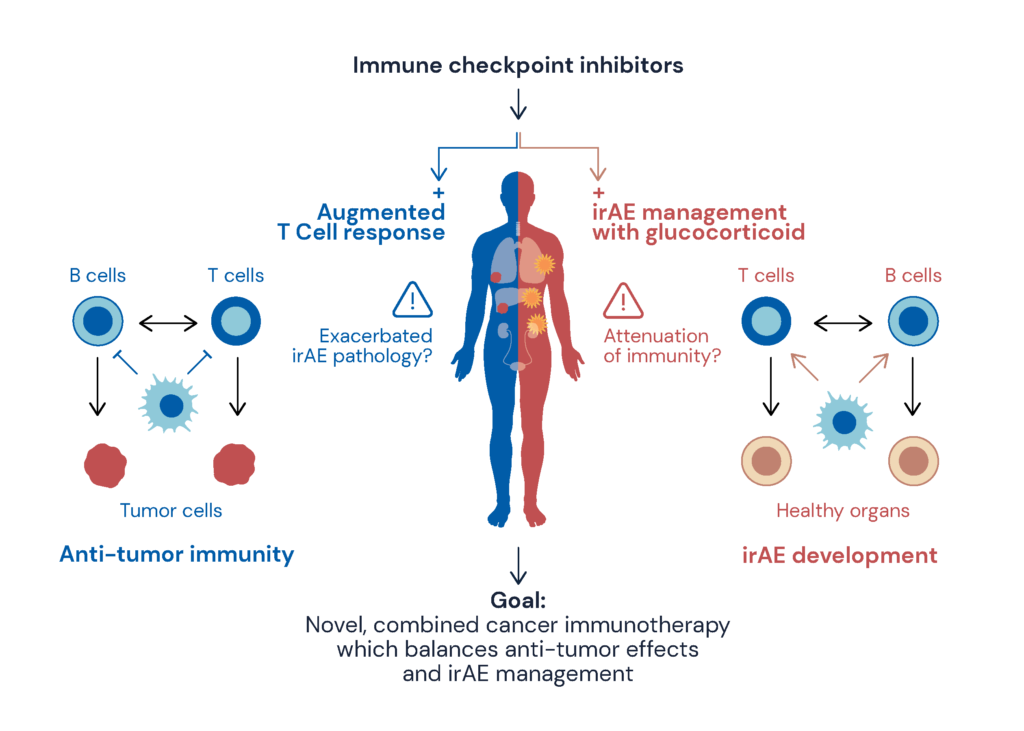Our Mission
- Establishment of novel cancer immunotherapeutic approach that balances antitumor effect and irAE management
- Seamless translation of basic research to clinical practice
- Convergence of clinical evidence & standardization of irAE control team
Members
Professors

Kosaku Murakami

Hirotake Tsukamoto
Research Focus
The morbidity of cancer is close to 50%. The emergence of cancer immunotherapy, including anti-PD-(L) 1 antibody, has brought a paradigm shift in cancer treatment. Cancer immunotherapy is expected to become a major option for cancer treatment, but there are still several challenges to be solved to further expand its versatility and enhance its effectiveness. In our laboratories at the Division of Clinical Immunology and Cancer Immunotherapy, we are conducting research aimed at predicting and improving so-called side reactions associated with cancer immunotherapy, immune-related Adverse Events (irAE).
It is quite likely that systemic and excessive immunosuppression by corticosteroid for the management of irAE alleviates anti-tumor immune responses. On the other hand, focusing only on immune exponentiating approaches will increase the risk of irAE. We are working on technologies which can solve such contradictory issues. Thus, we aim at not only predicting the safety of treatments in advance, but also rescuing patients with irAE to restart cancer immunotherapy. In order to realise an ideal cancer immunotherapy, it is essential to systematically understand the details of immune responses against cancer and against patients themselves (see below figure).
Figure: Anti-tumor Immunity and irAE Are Simultaneously Induced within the Same Body

Our research goals are to clarify the mechanisms underlying irAE development elicited by cancer immunotherapies and to identify critical determinants for efficacy and safety of cancer immunotherapy while especially focusing on immunological reactions of the elderly, who account for the majority of cancer patients. Through such preclinical research, we have already identified candidate factors involved in irAE development, and are currently developing novel cancer immunotherapeutic approaches that combine anti-tumor effects with improvement of irAE symptoms.
In clinical practice, there are diverse individual differences in the severity of irAE and the organs affected, and it is therefore difficult to control them. Our division has been establishing an “irAE Unit” since October 2021 to support the safety of cancer immunotherapy in terms of medical care, in collaboration not only with the departments directly involved in cancer treatment, but also with the departments involved in diagnosis and treatment of immune disorders at Kyoto University Hospital – continuing to provide medical support for cancer patients in the hospital. Furthermore, pre-clinical research is also being developed in order to conduct comprehensive analysis of in-house clinical information on cancer immunotherapy and immunological examination of bioresources, mainly patients’ specimens, in order to elucidate the etiology and pathology of irAE.
In accordance with our statements above, we would like to promote bi-directional research and realize novel application from a bench to clinic, from the perspective of both basic molecular biology as well as medical doctors in practice.
Selected Publications
Tsukamoto, H., Komohara, Y., Tomita, Y., Miura, Y., Motoshima, T., Imamura, K., Kimura, T., Ikeda, T., Fujiwara, Y., Yano, H., Kamba, T., Sakagami, T., Oshiumi, H. Aging-associated and CD4 T cell-dependent ectopic CXCL13 activation predisposes to anti-PD-1 therapy-induced adverse events. Proc. Natl. Acad. Sci. U S A. 119, e2205378119, 2022. DOI: 10.1073/pnas.2205378119.
Recruitment & Contact
We are permanently recruiting highly motivated students and postdoctoral fellows regardless of previous scientific backgrounds.
Please contact us using CCII’s contact form or by directly sending an email to recruit_ccii@mail2.adm.kyoto-u.ac.jp. Please indicate in which position and subject area you are interested in and that your inquiry is about our research division.
